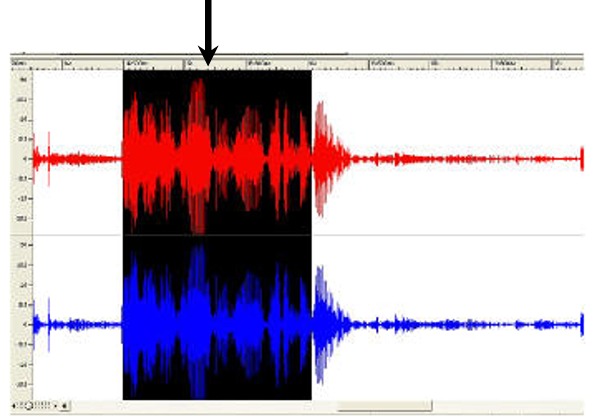

Compare the effects of stylistic variables.Extract all instances of a given class of items: voiceless fricatives preceding front vowels, syllables with the structure CCCV, fricative allophones of / tʃ/, utterances with a given intonation pattern - your annotation is the only limit.Logs the search criteria and results to a text file.Labels the WAV and TextGrid files with the labels from the orthographic transcription tier ( pal-ortográfica), as well as other information related to the search.Extracts the TextGrid from the same section of the recording as the sound.individual phones), it is possible, for example, to search for individual phonemes and extract the sound of the entire syllable they are located in, or indeed the entire word or utterance. instruments) and their smallest sub-segments at the bottom (e.g. When using a hierarchically-segmented TextGrid, with the largest segments on top (e.g. Extracts the sound from the section of the recording corresponding to each word meeting the search criteria, and saves it to individual WAV files.Limits the search to speech elicited through the reading of a list of sentences (the Lectura de oraciones section of the instrumento tier).Searches the phonemic transcription tier ( pal-fonémica) for all words containing any of /b d g p t k/ followed by an alveolar tap / ɾ/, with an optional dental diacritic ( ̪) between them.With its default settings, MaSCoT does the following:
#Large amount of sound files on praat download
To get an idea of MaSCoT's capabilities, download the TextGrid and WAV file from my Praat tutorial, open them in Praat (the WAV must be opened as a LongSound file), and execute MaSCoT (open it as a script from within Praat). Optionally, it can also extract and label TextGrid fragments (to individual TextGrid files) and/or audio (to individual WAV files) from any tier related to the search results. MaSCoT's output always includes a report detailing the search results and the search and extraction options used. MaSCoT takes a TextGrid and a LongSound object as input, and allows users to perform sophisticated searches on these objects using regular expressions and multiple-tier conditions. MaSCoT is a tool developed to facilitate searching, extracting and analyzing information contained in large, richly-annotated speech corpora developed in Praat. MaSCoT-R 2.7 Licensed under the GNU GPL v3. If you wish to use this recursive version of MaSCoT on a single recording, temporarily place the audio and text grid files in their own folder and process that folder. This new version of MaSCoT makes working with large numbers of recordings far easier and more efficient - instead of requiring the user to load and process recordings one at time, it automatically processes the recordings in all the subdirectories of a user-specified root folder. Massive Speech Corpus Tool - Recursive (MaSCoT-R) I've also prepared some tutorials for using Praat (in Spanish). This page contains a few resources to make life with the program a bit easier. If you work with spoken language, you've undoubtedly worked with Praat.


 0 kommentar(er)
0 kommentar(er)
